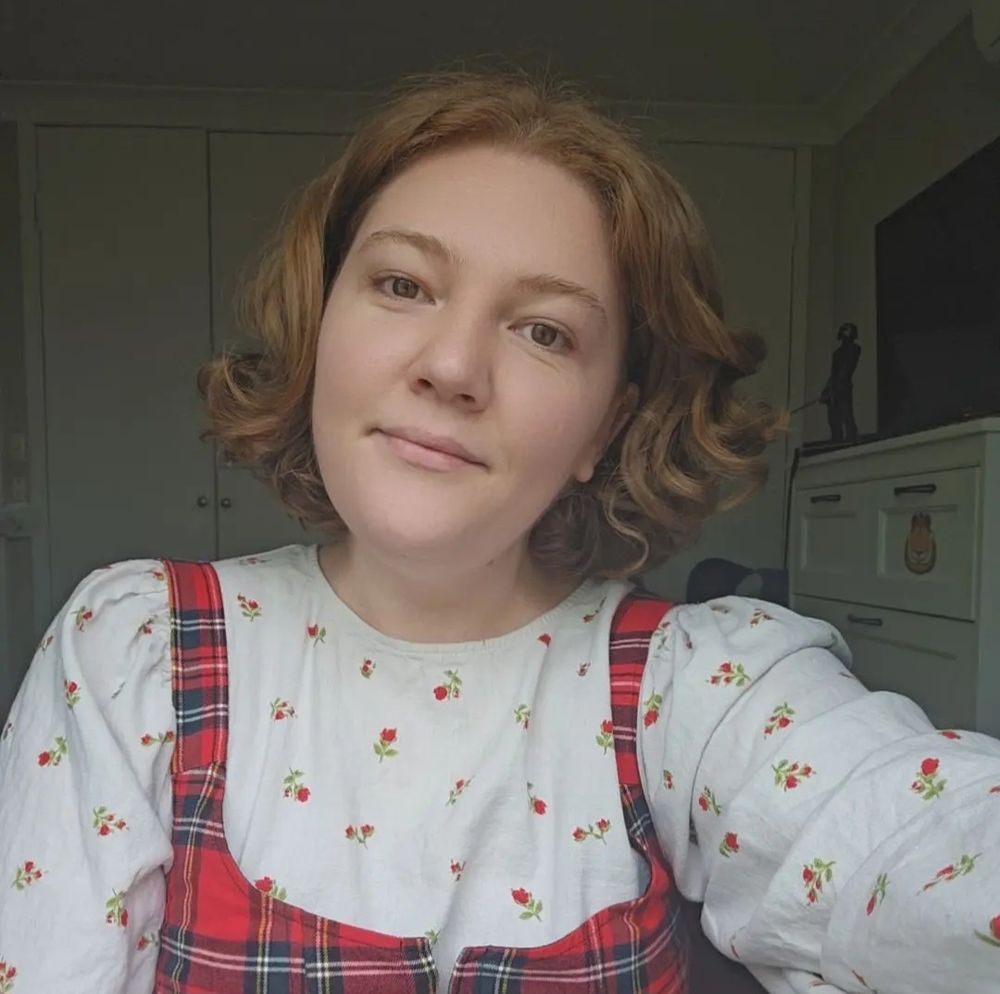 Tell us about yourself.
Tell us about yourself.
Ella T. Holmes doesn’t write to escape the world, she pokes holes in the one we've got and asks why we can't do better. Ella maintains corporeal existence by patting cats, writing, and engaging in Disability Justice advocacy. Her passions lie in media criticism, disability representation, fairytales, and storytelling.
Her work has been published in Antithesis, The Bitchin' Kitsch, and is forthcoming in Aurealis, among others.
Where did you grow up, and how did this influence your writing?
I grew up moving all around Australia, and I believe it gave me a flexible and adaptive view of the world. Seeing things done or said differently from place to place helped me understand that there is so much diversity of perspective and lifestyles. I also was born with disabilities that went undiagnosed for many years, forcing me to adapt and overcome (to my detriment, as inclusion and accommodation are always preferable), which has made me hungry for authentic representation of disabilities and chronic illness—now, I write them!
What’s the best piece of feedback you’ve ever received?
It's hard to pick just one bit of feedback as being the best, but I really love when I'm encouraged to be honest, authentic, and vulnerable. I need the encouragement and the suport to do so for many reasons, not least of all because in our current and past literary landscapes, authentic disability stories have been erased, ignored, or have been found to make non-disabled audiences uncomfortable. It's easy to fall into a spiral wondering if your story or book will go anywhere when you're being this truthful and raw on the page, wondering if non-disabled people will believe and enjoy the story when ableism is so rampant, and wondering if you need to tone down the realities in favour of more familiar storytelling. But to that I remind myself, and my friends remind me, that this is what drives me: Be authentic!
What advice would you give to aspiring writers?
Connect with like-minded writers and be open to honest, constructive feedback. Having a group of genuine friends who are not afraid to tell me I've written something illogical is beyond amazing, and it makes me feel much more secure about my final drafts. I can be proud of my work because I know that if it were not working, they would have told me!
What’s a fun fact about you that your readers might not know?
I can only make finger guns with my right hand. My left hand does not let me straighten my fingers, so if you need a cowboy comrade, you'd best stand on my left so we're covered on all sides!
What’s your favorite quote about writing?
{I love what editor Alice Wong said in 'Disability Visibility', which reads: "Storytelling can become a movement for social change." I truly believe it can. This is why it's so important to me that authentic portrayals of disability are given the space and publicity they have so long been denied, because it can help fix people's misbeliefs about what disability can be like.
When you’re not writing, how do you like to spend your time?
I'm autistic and simply have to engage with my special interests or else I feel like I'm dying. This means I'm reading about Disability Justice, doing critical readings, researching, and talking about writing, all while petting my cats!
Do you remember the first story you ever read, and the impact it had on you?
I don't remember the first story I ever read, but I distinctly remember the first fantasy novel I read that was aimed at adults. It was 'Daughter of The Forest' by Juliet Mariller, and it changed me as a person. I was in love with the protagonist, Sorcha, and felt so seen because of how she had so much responsibility at a young age. The hardships she endured, and her enduring kindness, made me feel like I wanted to be just like her.
What has inspired you and your writing style?
I'm really inspired by layered prose and subtext. I don't think I have the hang of it yet, but I am always striving to imbue my prose with as much depth as I can, inviting the reader to make inferences and engage with the text with a critical eye.
How do you deal with negative reviews?
I don't feel like I "deal with" them at all. They're a natural and good part of the reader eco-system, and I appreciate them even when I disagree with them.
How do you connect with your readers?
I love connecting with people through personal stories and experiences. I feel a strong sense of community when I post about something I've gone through, felt, or thought, and people go "hey, me too!"
What’s next for you as a writer?
I hope to continue the project of uplifting fellow disabled and chronically ill writers and stories. I also hope I can write more stories about my perspective on disability, as well as write more essays and critical non-fiction work on my favourite disability topics so we can do that important work of challenging ableist narratives.
Ella T Holmes’s Author Websites and Profiles
Website
Amazon Profile
Goodreads Profile
Ella T Holmes’s Social Media Links
Twitter
YouTube Account
BlueSky
All information in this post is presented “as is” supplied by the author. We don’t edit to allow you the reader to hear the author in their own voice.